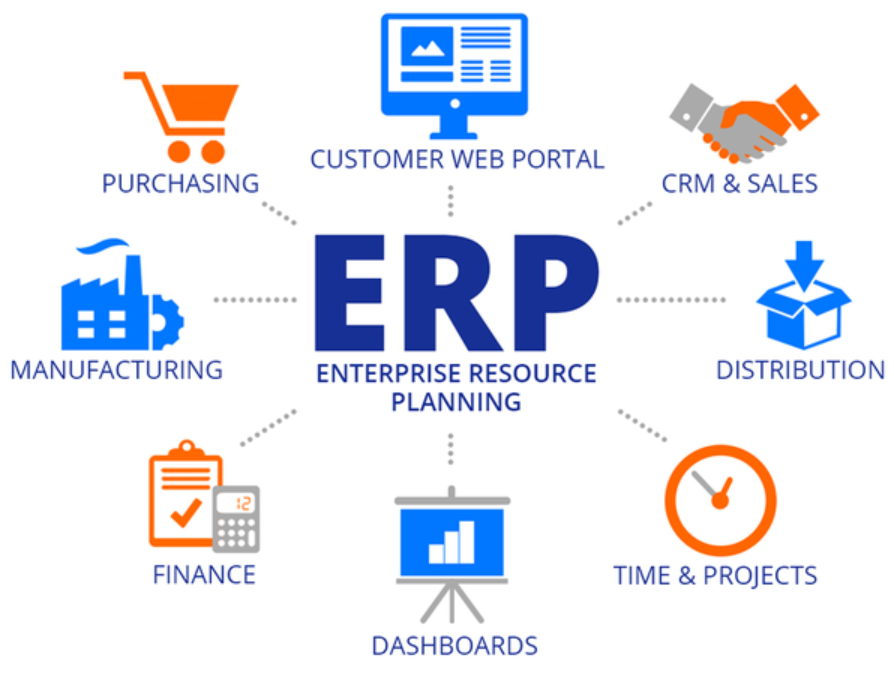Enterprise Resource Planning (ERP) for Small Businesses: Streamlining Operations and Boosting Efficiency
ERP (Enterprise Resource Planning) systems have become integral for businesses of all sizes, but their significance for small enterprises often goes unnoticed. Understanding how ERP can significantly impact small businesses is crucial in today’s competitive landscape.
Small businesses often face the challenge of managing complex operations while striving for growth. Enterprise Resource Planning (ERP) systems emerge as invaluable assets, offering a comprehensive solution to streamline processes, enhance efficiency, and foster scalability. Embracing ERP solutions tailored for small enterprises unleashes immense potential, empowering businesses to navigate challenges and seize growth opportunities.
Understanding ERP Systems

ERP systems are integrated software solutions that facilitate the management of core business processes, from finance and HR to inventory and supply chain management. They act as a centralized hub, providing real-time data and insights crucial for informed decision-making.
Importance for Small Businesses
Small businesses face unique challenges in resource management and operational efficiency. Implementing an ERP system can revolutionize their functioning by:
Streamlining Operations
ERP systems streamline operations by eliminating redundant tasks, automating processes, and ensuring smooth communication across departments. This optimization leads to increased productivity and resource utilization.
Improved Efficiency
With ERP, small businesses witness improved efficiency as they can access accurate data instantly. This minimizes errors, reduces manual work, and accelerates response times to customer needs, fostering better customer service.
Enhanced Data Management
Small businesses often struggle with data organization. ERP systems offer robust data management capabilities, aiding in data consolidation, analysis, and reporting. This empowers informed decision-making and strategic planning.
Choosing the Right ERP System
Selecting an ERP system tailored to a small business’s needs requires a meticulous approach. Factors to consider include:
Assessing Business Needs
Understanding the specific operational challenges and goals is crucial. Identifying the required functionalities ensures the chosen ERP aligns with business objectives.
Scalability and Customization
A scalable ERP system capable of adapting to evolving business needs is vital. Customization options allow tailoring the system to address unique processes.
Budget Considerations
Balancing features with affordability is essential. Small businesses should evaluate the long-term ROI while considering initial investment costs.
Implementing ERP Successfully
Successful ERP implementation involves careful planning and execution:
Planning the Implementation Process
Thorough planning, involving key stakeholders, sets the stage for a smooth implementation. Establishing timelines and milestones is crucial.
Employee Training
Comprehensive training ensures that employees can effectively utilize the ERP system, maximizing its potential benefits.
Monitoring and Evaluation
Regular monitoring and evaluation post-implementation allow for adjustments and optimizations, ensuring continued efficiency.
Overcoming Challenges
Despite the benefits, challenges exist:
Resistance to Change
Adapting to new systems can face resistance. Encouraging employee buy-in through communication and support is pivotal.
Integration Issues
Integrating the ERP system with existing software and processes might pose challenges. Addressing compatibility issues early is essential.
Maintenance and Upkeep
Regular maintenance and updates are crucial for ERP systems to function optimally. Creating a plan for ongoing support is vital.
Conclusion
ERP systems offer immense value to small businesses by enhancing operations, efficiency, and data management. Embracing ERP can significantly boost competitiveness and growth opportunities for small enterprises.
Encouraging Small Business Adoption
Encouraging small businesses to adopt ERP systems requires awareness of the transformative potential they hold. Emphasizing benefits and providing tailored solutions can facilitate widespread adoption.
FAQs
1. Is ERP only for large corporations?
ERP systems benefit businesses of all sizes by optimizing operations.
2. How do I know if my small business needs an ERP system?
Assess your business’s scalability, data management needs, and operational efficiency to determine the necessity.
3. Are ERP systems expensive for small businesses?
There are cost-effective ERP solutions available tailored for small business needs.
4. How long does it take to implement an ERP system?
Implementation timelines vary based on business size and complexity but typically take several months.
5. Can ERP systems be customized for unique business processes?
Yes, many ERP systems offer customization options to align with specific business requirements.